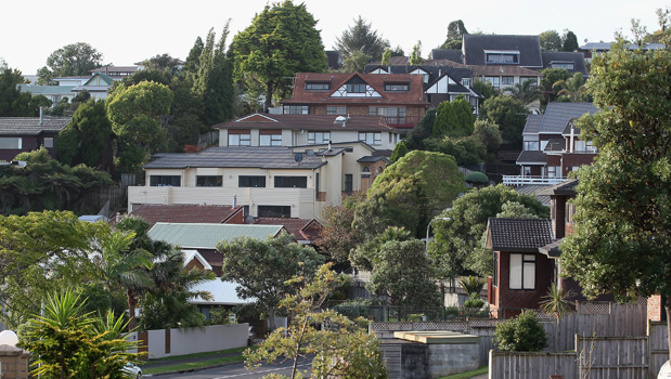
Demands are growing for first-home buyer house lending restrictions to be relaxed, with one real estate agency boss saying Aucklanders now needed an average $200,000-plus deposit to buy their first home.
Barfoot & Thompson's Peter Thompson, the Real Estate Institute and Century 21 national manager Geoff Barnett want Reserve Bank lending limits scrapped for newbie buyers and TailRisk Economics principal Ian Harrison has released a new report on proposed debt to income limits.
Barnett decried first-time Auckland buyers needing an average $200,000-plus deposit.
"We've got young couples in Auckland earning a quarter of a million dollars between them who could easily service a mortgage but because of high rents and living costs, they struggle to save a big deposit. It's over $200,000 in deposit just to buy the average Auckland home," Barnett said.
TailRisk's Harrison released an analysis of the Reserve Bank's proposal, out in June, to bring in debt to income limits. This was a crude tool that did not adequately assess borrowers' debt servicing capacities, and which will perversely target many better quality loans, Harrison said.
Barfoot & Thompson wants to exempt entry-level buyers from tough lending restrictions by allowing them to buy houses with less than 20 per cent deposit, as long as the properties are below a $600,000 threshold. Thompson said the proposed nationwide exemption would only apply if purchasers lived in the properties. Investors would not be eligible.
"I believe that we need to make it easier for first-home buyers to get into property," Thompson said, telling the Herald's Focus prices had been falling during the winter and the Auckland market was now seeing the effects of trading bank moves and the Reserve Bank's lending restrictions.
Three to four years of huge house price growth were usually followed by a market downturn of six to 12 months, he said. First home buyers would have more opportunities if LVRs were relaxed for them and more properties under $500,000 had been sold lately, he said.
"It is very difficult for them," Thompson said of first home buyers, "and it's one area I do believe the Reserve Bank do need to look at reducing the limits of the LVR on that category only. I'm not talking about the investor but the first home buyer or any home owner under $500,000 that are going to live in the property - they could soften that part."
REINZ data out on Friday showed sales volumes nationally declining by a quarter in the last year and chief executive Bindi Norwell said it was time for first-home buyer lending rules to be relaxed.
LVR restrictions and access to finance were two of the main reasons for the slowdown in the market, she said.
"The LVR restrictions have done their job of slowing the market, but now it seems they are acting as a handbrake which is why REINZ is calling for LVRs to be reviewed for first home buyers," she said.
But the Reserve Bank's Official Cash Rate statement on Wednesday last week reiterated its housing market concerns: "House price inflation continues to moderate due to loan-to-value ratio restrictions, affordability constraints and a tightening in credit conditions. This moderation is expected to persist, although there remains a risk of resurgence in prices given continued strong population growth and resource constraints in the construction sector."
Earlier this month, a spokesman for Prime Minister Bill English referred questions about Thompson's call for an LVR relaxation to Finance Minister Steven Joyce who said the Reserve Bank was not "currently looking at this sort of proposal". The LVR policy was now stricter for investors than for other homeowners, Joyce said.
Read more: Should first home buyers be exempt from LVR lending?
"First-home buyers are often able to get a Welcome Home Loan which is exempt from the LVR policy. Housing NZ's rules for this require only a 10 per cent deposit. The Government's KiwiSaver Homestart policy is also available for first-home buyers," Joyce said this month.
Loan to value ratios:
• Started October 2013
• Revised November 2015, October 2016
• Low-deposit (high-LVR) loans to investors restricted
• Clamps are on loans above 60 per cent of a property's value
• High-LVR investor loans can be no more than 5% of a bank's total new lending
• Restrictions on owner-occupiers low-deposit (high-LVR) loans
• Clamps are on loans above 80 per cent of a property's value
• These loans can be no more than 10 per cent of a bank's total new lending.
[Source: Reserve Bank of New Zealand]
Take your Radio, Podcasts and Music with you









